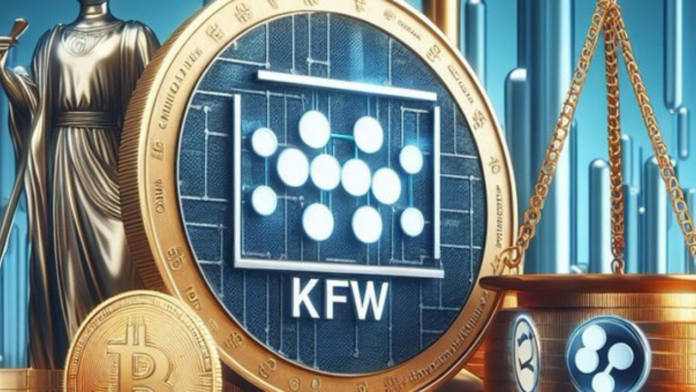The German state-owned bank Kreditanstalt für Wiederaufbau (KfW) has taken a bold step into the digital space by announcing its intention to issue its first-ever blockchain-based digital bonds. This move, outlined in compliance with the German Electronic Securities Act (eWpG), marks a significant milestone in the financial landscape. These innovative digital bonds utilize blockchain technology to securely store bond details and ownership on a transparent digital ledger, facilitating real-time processing for issuance and trading activities.
Contrary to the high-tech allure of blockchain, KfW has opted to settle financial transactions related to these bonds through traditional payment systems. This cautious approach, while leveraging blockchain’s benefits, ensures a smooth and familiar process for investors. The bond issuance is slated for completion in the summer of 2024, adding a new chapter to KfW’s financial playbook.
Partnering with key players is crucial for KfW’s foray into digital bonds. Union Investment stands as a pivotal anchor investor, bringing valuable expertise in crypto securities to the table. Additionally, a consortium of bookrunners, including DZ Bank, Deutsche Bank, LBBW, and Bankhaus Metzler, will oversee the issuance process and engage with investors. DZ Bank will act as the collective registered holder, with Cashlink Technologies stepping in as the crypto securities registrar.
Tim Armbruster, KfW Treasurer, emphasized the learning curve associated with this digital endeavor, stating, “The initial goal on the road to the digitalization of refinancing is to learn and thereby identify the potential for improvement.” This learning mindset underscores KfW’s strategic approach to integrating blockchain technology into its operations.
KfW’s move aligns with a broader trend in the global financial sector towards blockchain integration. While KfW is not the pioneer in digital bonds, its entry into this space reflects a growing recognition of blockchain’s transformative potential. In 2019, the Bank of China issued substantial blockchain-based bonds, while Santander unveiled the world’s first end-to-end blockchain bond.
Furthermore, Societe Generale and HSBC made notable strides in blockchain utilization, with Societe Generale issuing a green bond on Ethereum and HSBC introducing a Gold token service in Hong Kong. These initiatives showcase a concerted effort among financial institutions to harness blockchain’s efficiency and transparency benefits.
Notably, KfW’s digital bond will not be available in the U.S. market due to regulatory constraints. This limitation highlights the complex regulatory landscape that financial innovators navigate, emphasizing the importance of strategic planning and regulatory compliance in digital ventures.
As KfW charts its course with digital bonds, it signals a transformative shift in traditional financial paradigms. The convergence of blockchain technology and financial instruments opens new avenues for efficiency and transparency, heralding a future where digital innovation reshapes the financial horizon.


